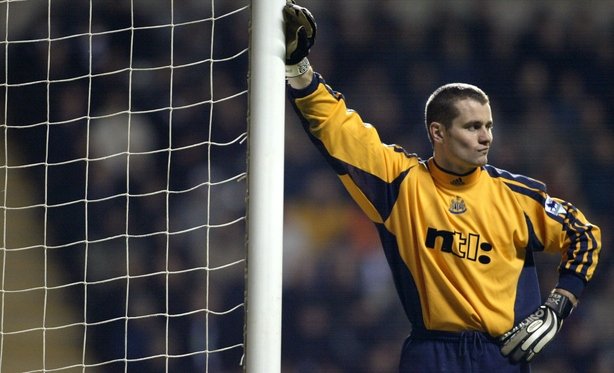When Shay Given began the trek towards the last World Cup that took place in Asia, he had a sizeable chunk of time to avail of a mental break.
On 11 May 2002 he started for Newcastle in a 3-1 defeat against Southampton. Then the former Ireland goalkeeper had three weeks to switch focus from the end of the club season to prepare for the Boys in Green's World Cup opener against Cameroon on 1 June.
Much happened in that span of time of course, including a certain turn of events on an island in the Pacific which ended Roy Keane's involvement before it had even started.
But needless to say 20 years on, the upcoming World Cup in Qatar - the first to take place in the Northern Hemisphere winter - gives players little time between the pause in the club season and the start of the tournament.
For example, in the Premier League, the final round of fixtures before the tournament is on the weekend of 12-13 November. Seven days after that latter date, hosts Qatar and Ecuador will kick off the opening game.
One consequence of the lack of lead-in time has been less time for aspiring players to recover from injury and consequently a growing list of big names will be unable to feature. But how will the potential lack of cohesion affect the participating nations, especially the major contenders?
It's a point Given considered as RTÉ Sport launched coverage details for the 2022 FIFA World Cup across television, radio and online, with 64 live games across RTÉ2, RTÉ Player and RTÉ News Channel.
"Naturally with major tournaments, there was always that break and there was always a pre-tournament camp," said Given, who will be among the stellar cast of panellists throughout the tournament which will also include Richie Sadlier and Republic of Ireland international Aine O'Gorman.
"There were always friendlies put in there, real preparation for a major finals and that's the strange thing with this World Cup.
"It's straight from the Premier League or whatever league you're playing in and a week later you're playing in the first game.
"That's a tough thing for the players and managers as well. Normally they would have at least one game - a couple of nations do have [friendly] games but it's crammed in. There's not much preparation time."
But given that this World Cup is taking place mid-season for players in the majority of leading leagues, the players who do make it to Qatar will be match sharp.
"[Aine] O'Gorman made a good point that a lot of the players will be at peak fitness. Sometimes at tournaments, World Cups, are at the end of a long, hard gruelling season," said Given.

"So all players are really at peak fitness and going into a World Cup fresh you would think, so I think that bodes for good football."
The last time a non-European nation won the World Cup, it was all the way back in that 2002 tournament which Given graced for Ireland.
On that occasion, Brazil triumphed in Yokohama and they, along with a Lionel Messi-led Argentina, are heavily favoured to contend for glory this time round.
But for Given, a last hurrah for Belgium's fading golden generation should not be counted out.
"If they are a golden generation coming towards the end, a lot of those players will look at this and think this is our last chance," said the Donegal native.
"But if you go through their team, there's Lukaku up top, obviously De Bruyne - a phenomenal player - Hazard... can they get up to match fitness? And of course Courtois, one of the best goalkeepers in the world.
"They do have a nucleus of some brilliant players in that squad, so if they can all hit the ground running, maybe that could be the European [contender]."
Listen to the RTÉ Soccer podcast on Apple Podcasts, Spotify or wherever you get your podcasts.


